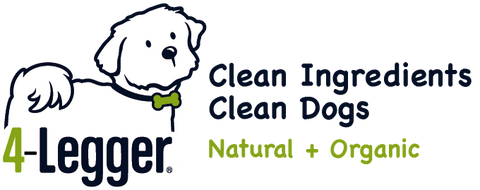Is Your Dog Shampoo A Chemical Free Product?
We recently had a phone call with someone who had been using a product for years and had never looked at the ingredients. She said it was "all natural" and "chemical free".
"Chemical free?" I actually repeated it out loud. She replied, "Oh yes, chemical free."
What on earth do I say to this customer?
This must be some new marketing terminology that is not only inaccurate, it is misleading and... well... ridiculous.
Chemicals aren't bad. Everything is made from chemicals. I happen to like drinking water and water is - I hope you're sitting down - a chemical!
I asked the customer what she thought "chemical free" meant. Her reply was that it was "an all natural product".
I then realized I was talking to a Dog Mom who dearly loves her fur baby and is trying very hard in the vast confusion of marketing gimmicks to find a product that is truly all natural, not synthetic, safe and non-toxic.
This was my wheelhouse!
If the other company's intention of saying "chemical free dog shampoo" actually meant "free of synthetic chemicals" (as we have been saying in our marketing) then their use of phrase was very misleading.
The company's primary ingredient in their dog shampoo is coco-glucoside.
Coco-glucoside isn't a horrible ingredient.
It is a mixture of fatty alcohol from coconut oil and fruit sugars (glucose).
The chemical reaction between the coconut oil and fruit sugars (glucose) that comprise coco-glucoside doesn't occur naturally in nature so it is considered a synthetic compound but is generally safe with a lower risk of allergies and dry/itchy skin.
The scientific literature is a bit sparse but we did find one article from 2014 in the journal of Contact Dermatitis* that may be relevant to dogs.
The 19 year study looked at over 10,000 human patients with suspected contact dermatitis. Thirty (30) of the patients (24 women and 6 men) had had a positive reaction to alkyl glucosides. The conclusion of the study was that an allergy to alkyl glucosides in cosmetics (shampoos and other products) does occur, and they say "may be more frequent than thought".
Obviously from this study, statically, the probability of an allergic reaction is clearly pretty low; but possible.
So, the bottom line, would I use coco-glucoside on my dog?
No.
Coco-glucoside isn't going to risk contamination with 1,4-dioxane or ethylene oxide but I still prefer 4-Legger's certified organic dog shampoo with essential oils. I know the quality of each and every ingredient. I know we use beneficial essential oils that improve your dog's skin and coat. I know they are safe and non-toxic for both me and my fur family!
That said, if you or your dog had a rare allergy to essential oils or you wanted an enzyme stain remover, coco-glucoside may be a viable option - just be sure to read all of the other ingredients in the product to make sure they are also safe for you and your dog!
PS - If we had an award for the Top 10 Most Ridiculous Marketing Tactics Ever Written to Sell Dog Shampoo using the phrase "chemical free" would be in the Top 10!
*Allergic contact dermatitis caused by alkyl glucosides. Gijbels D, Timmermans A, Serrano P, Verreycken E, Goossens A. Contact Dermatitis. 2014 Mar;70(3):175-82.





